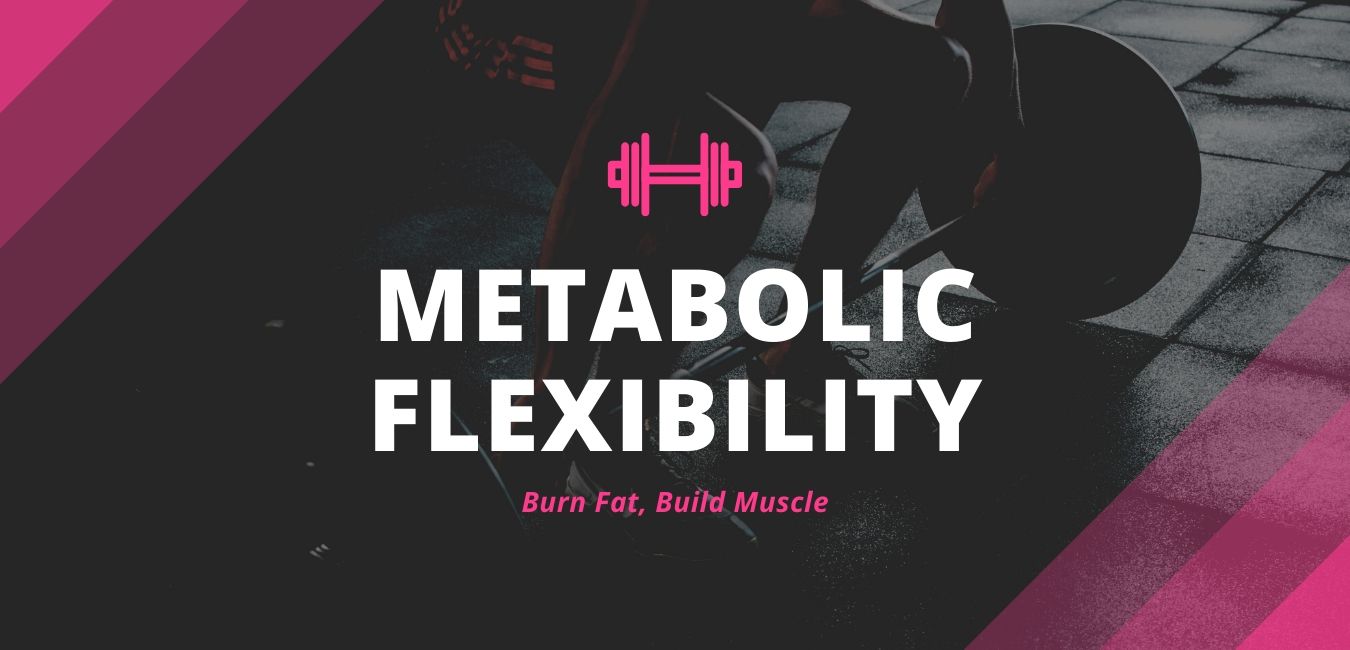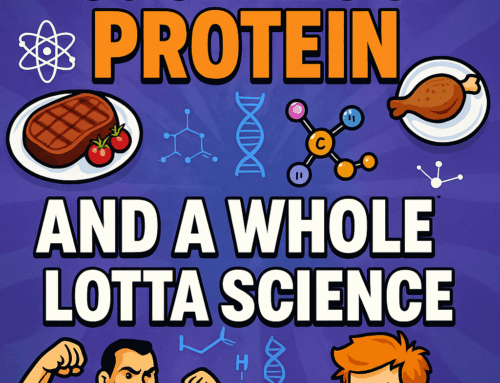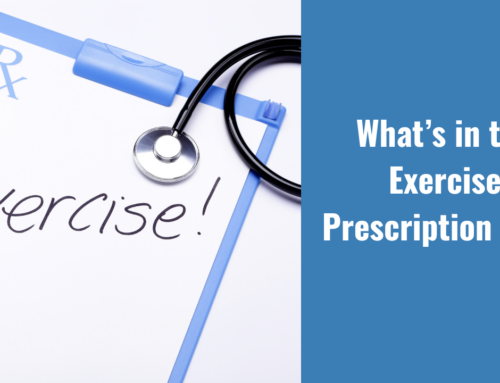I recently served on a roundtable of fitness experts featuring Dr. Layne Norton, Dr. Jose Antonio, Ben Esgro, Jermey Loenneke, Dr. Gabe Wilson, Dr. Jacob Wilson, and during this discussion, a participant asked a question:
“What advice would you give to a fitness enthusiast looking to build muscle and lose fat?”
For most lifters, these goals aren’t far apart. If you’re on the extreme ends and want to gain a lot more mass or drop a ton of fat to step on stage, you’ll need a more specialized plan; a plan to improve Metabolic Flexibility.
What is Metabolic Flexibility?
Metabolic flexibility is the ability to use the right fuel at the right time. You want to use fats during low-intensity work but switch to using carbs for high-intensity work, such as weight training and sprints. And you can improve your metabolic flexibility by doing these three things.
3 Steps to Improve Metabolic Flexibility
Here are three factors that will increase your metabolic flexibility and help you gain lean muscle while losing body fat.
1) More Protein
I’m sure you are bored out of your mind about me yammering on about protein needs. The short action item: Get more. But how much more?
In studies where participants ate a hypocaloric diet (calories were below maintenance levels, so a fat loss diet), their protein needs clocked in around a MINIMUM of 0.75 grams per pound of body weight.
A 200-lb person would want to eat 150 grams of protein per day on the low-end.
Some may go as high as 1.5 grams per pound of body weight per day, so our 200-lb friend would eat 300 grams per day. Most of the time there’s no reason to eat that much. You want to do the Minimal Effective Amount (MEA).
Work by Devkota S et al. 2011 showed that replacing carbs with protein is beneficial in shifting molecular activity in muscle vs. fat, which should help improve your body composition.
2) Food Variety
Most people (myself included) tend to eat the same things day in and day out.
When I get stressed, and my schedule goes nuts (which happens a lot lately), I will fall back to the same routine, without much variety.
Variety is the spice of life and allows you to feed your body a vast array of powerful micronutrients critical for health and performance. It also helps prevent OVER exposure to any one item or toxin! A double whammy.
Why do you need variety? Three reasons.
More micronutrients.
Less exposure to bad stuff.
Fills you up (automatically eat fewer calories).
3) Add-in a Fast (aka Intermittent Fasting)
The definition I’m using of fasting is zero calorie-containing items during a set amount of hours. Non caloric items only; none of this lemon juice, hot pepper, and maple syrup crap-style fasting.
The same guy who promotes this horrible idea also says that since we inhale nitrogen in the air, we can pull nitrogen in by breathing, and we don’t need nitrogen-containing macronutrients like protein. I almost spit my tea out when I read it! Stanley Burroughs (the author of Master Cleanse) can shove his eBook where the sun doesn’t shine.
Now I’m so fired up; I lost my place! Oh yes, fasting, and metabolic flexibility.
Hang with me here as the physiology gets a bit messy. Mention the words “intermittent fasting,” and people then assume they need to do all their cardio fasted to burn more fat.
Fasted cardio will indeed result in burning more fat DURING the exercise session as confirmed by measuring the Respiratory Exchange Ratio (RER) during a fasted vs. a fed state.
It’s also true during a fasting condition, insulin levels are low, pushing the body towards more direct fat burning. Sounds great so far, but hold the Master Cleanse eBook, my fasted cardio-bunny friend.
If we look past the ACUTE effects over 24 hours, the fed state appears to increase the EPOC (aka afterburn) effect; resulting in the burning of more fat calories TOTAL. Paoli A et al. out of Italy recently demonstrated this effect.
Wrapping Up
Work on these three items to improve Metabolic Flexibility, burn more fat, and add some lean muscle without having to go to extremes. If you are looking for more information on Metabolic Flexibility, check out the Flex Diet certification course.
Rock on
Dr. Mike




Leave A Comment